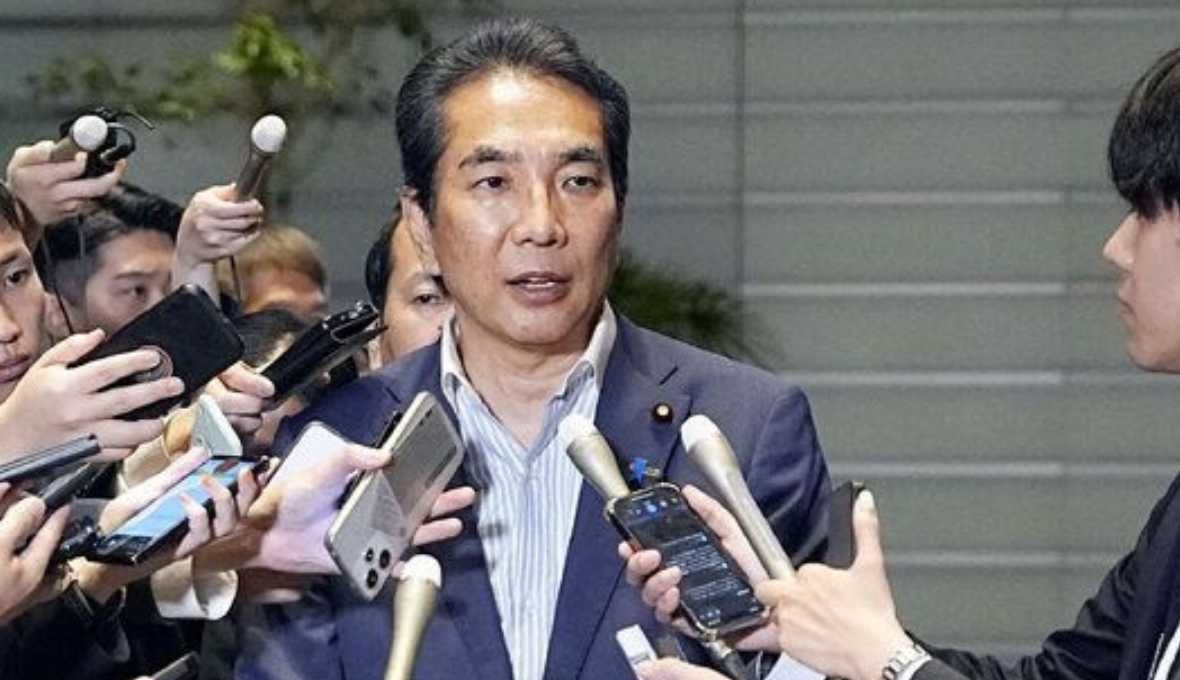Understanding the Context Behind the Resignation
Taku Eto stepped down amid public uproar following his statement, “I have never bought rice myself… my supporters give me a lot of rice.” The timing couldn’t have been worse, with Japan amid a rice shortage that led to soaring prices and rationing in supermarkets.
This shortage has worsened food security concerns in a nation where rice is a dietary staple for almost every household. Although the government tried to alleviate the crisis by releasing tons of rice from emergency stockpiles, the effort proved insufficient. Urban consumers, already struggling with high costs, became increasingly dissatisfied, and Eto’s perceived detachment only fueled their frustrations.
Table of Contents
Criticism of the Minister’s Remarks
Farm Minister Eto’s comment revealed a significant disconnect between Japan’s leadership and the average citizen. He seemingly trivialized the struggles faced by millions of households dealing with limited rice availability and rising costs.
For politicians like Eto, whose base includes rural supporters and farming cooperatives, receiving gifts of rice may be the norm. However, the statement was insensitive and out of touch during a crisis. It also highlighted a broader issue of political figures being insulated from the challenges faced by ordinary citizens.
“We don’t need an agriculture minister who doesn’t understand the viewpoint of consumers or producers,” remarked Kazuya Shimba, general secretary of the Democratic Party for the People, summing up a sentiment shared widely across Japan.
Government’s Response to the Crisis
Following public backlash, Prime Minister Shigeru Ishiba attempted to manage the situation by introducing emergency measures and offering explanations for Eto’s resignation. The government released substantial volumes of rice from national stockpiles to ease supply constraints.
However, even these measures couldn’t override decades-long policies that hinder agricultural efficiency. Policies designed to protect small-scale farmers have left thousands of acres of farmland uncultivated, while tightly restricting new entrants into the farming sector. These limitations have contributed to a rigid agricultural system incapable of scaling production to meet demand.
The Problem with Historical Agricultural Policies
Policies have long bound Japan’s agricultural sector, which prioritizes small, independent farmers. While these rules prevent monopolization of agricultural land, they have resulted in significant inefficiencies over time.
- Uncultivated Land: A substantial amount of farmland remains unused due to restrictive policies that deter new farmers.
- Blocked Newcomers: Aspiring farmers face steep barriers to entry, further stagnating the industry.
- Stagnation: Aging farmers dominate the workforce, leaving little room for modernization and innovation.
The national farming cooperative, a powerful entity with considerable sway over the government, has historically blocked efforts to introduce reforms. This dynamic has created a challenging balance for the ruling Liberal Democratic Party (LDP), which relies heavily on rural areas for voter support.
The Political Implications
Urban voters have grown increasingly frustrated with high food prices and shortages, which rigid agricultural policies have exacerbated. This discontent has driven Prime Minister Ishiba’s already low approval ratings even further down, putting added pressure on the government ahead of upcoming elections for the upper house of Parliament.
The controversy underscores the challenging position of Japan’s political leadership. Balancing the interests of rural supporters, who back protective farming policies, with the growing dissatisfaction of urban voters has become an uphill battle.
The Next Agriculture Minister
To stabilize the situation and address voter dissatisfaction, Prime Minister Ishiba identified Shinjiro Koizumi as a potential replacement for Eto. Koizumi, the son of a former prime minister, is seen as a rising star in Japanese politics. His appointment could signal a shift toward more progressive policies aimed at modernizing the agricultural sector.
For the government, this is an opportunity to restore credibility while addressing systemic issues in the country’s food and agricultural economy. Koizumi’s leadership may prove instrumental in implementing reforms without alienating rural supporters.
Reactions from the Public and Political Circles
The public has overwhelmingly expressed discontent with the government’s handling of the rice shortage. Eto’s resignation provided the opposition with a chance to pounce. Calls for a no-confidence motion in Parliament demonstrate how significant the uproar has been.
Critics argue Japan needs an agriculture minister capable of bridging the gap between producers and consumers. This requires someone willing to tackle structural inefficiencies head-on, even if it means challenging entrenched interests, such as the national farming cooperative.
Bringing Agricultural Reform Back into the Spotlight
The resignation of Taku Eto offers Japan the opportunity to reevaluate its approach to agricultural policies. Without meaningful reform, systemic issues will persist, likely leading to recurring shortages and continued dissatisfaction among urban voters.
Japan’s leadership must focus on crafting policies that promote efficient production, encourage new entrants to farming, and modernize outdated systems, all while ensuring food security for its population.
Frequently Asked Questions
Why is Japan experiencing a rice shortage?
The shortage stems from poor harvests, outdated agricultural policies, and limited land use. These factors have created a supply-demand imbalance that has driven up rice prices.
What were the Minister’s controversial remarks about?
While speaking about farming policies, Taku Eto remarked he had never purchased rice because his supporters regularly gifted him large quantities, creating a perception of detachment from the struggles of everyday consumers.
What reforms are needed to resolve Japan’s agricultural challenges?
Key reforms include incentivizing younger generations to pursue farming, relaxing restrictions on land ownership, and allowing greater technological investments to modernize farming practices.
Who is Shinjiro Koizumi?
Shinjiro Koizumi is a prominent young politician and the son of former Prime Minister Junichiro Koizumi. He is seen as a capable and progressive candidate to lead Japan’s Ministry of Agriculture.
Time for Change in Agricultural Leadership
The resignation of Taku Eto marks a pivotal moment for Japan’s agricultural sector. Moving forward, the government must prioritize systemic reform to address both the immediate issues of rice shortages and the long-term sustainability of farming practices.
This is a chance to bridge the gap between rural traditions and urban needs, creating a balanced and thriving agricultural future for Japan. Whether the government succeeds will depend on its ability to adapt to changing demands.

